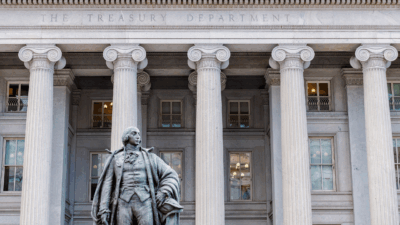
Sign up for smart news, insights, and analysis on the biggest financial stories of the day.
There are U-turns and then there is spinning around a rotary until you end up where you started. In the United Kingdom, they prefer the latter.
Immediate and widespread objection forced Prime Minister Liz Truss’s government to swiftly trash budget proposals earlier this month that threatened to send England’s tax code back to 1982 — and led to the dismissal of Chancellor of the Exchequer Kwasi Kwarteng last week. On Monday, with Truss on the ropes, newly appointed treasury chief Jeremy Hunt grabbed hold of the nation’s economic reins and laid out his plan to shore up public finances.
The Hunt for a Not-in-the-Red October
Merely proposing some £45 billion tax cuts was enough to crater the value of the pound and turn Hunt – once the Labour Party’s Public Enemy No. 1 thanks to being a cutthroat negotiator with NHS doctors in 2015 — into something of a unity figure. Truss already began to flip-flop two weeks ago on a proposed tax cut for England’s highest earners, and now Hunt is further pulling Britain off the Conservative government’s low-tax, high-borrowing plan that spurred a massive selloff of British assets and deepened fears that rampant inflation would only be exacerbated.
Nearly all of the proposed tax cuts are set to be ditched, but so too is a £60 billion energy price-cap subsidy intended to shield households from a looming energy crunch (details remain scarce on what a skinnied-down replacement could look like). In a rare British reference to actual emotion, Hunt called the decisions “eye-wateringly difficult.” But those tough choices on his first day on the job were enough to spark a small market rally:
- Only about £12 billion remain of the roughly £45 billion in tax cuts proposed in September. The package, once headlined by a freeze on a planned increase of corporate tax rates and the elimination of a 45% top tax rate on the highest earners, has been reduced primarily to a reduction in payroll taxes, according to the Institute of Fiscal Studies.
- Conservative Treasury Select Committee chair Mel Stride told the BBC Hunt’s plans should dig the country about halfway out of its £70 billion “fiscal black hole.” Optimism from the proposals spurred a much-needed rally on the benchmark 10-year government debt yield, while the British pound jumped over 1.8% against the dollar to $1.139.
UnTrussworthy: But that might not be enough to save Truss as even faithful Tories turn on her. On Monday, The Daily Mail reported Monday that over 100 Conservative members of parliament are ready to submit letters of no confidence in the Prime Minister. There would still need to be a rule change within the party to allow such a vote this early in her tenure, but drastic times seemingly call for drastic measures.











